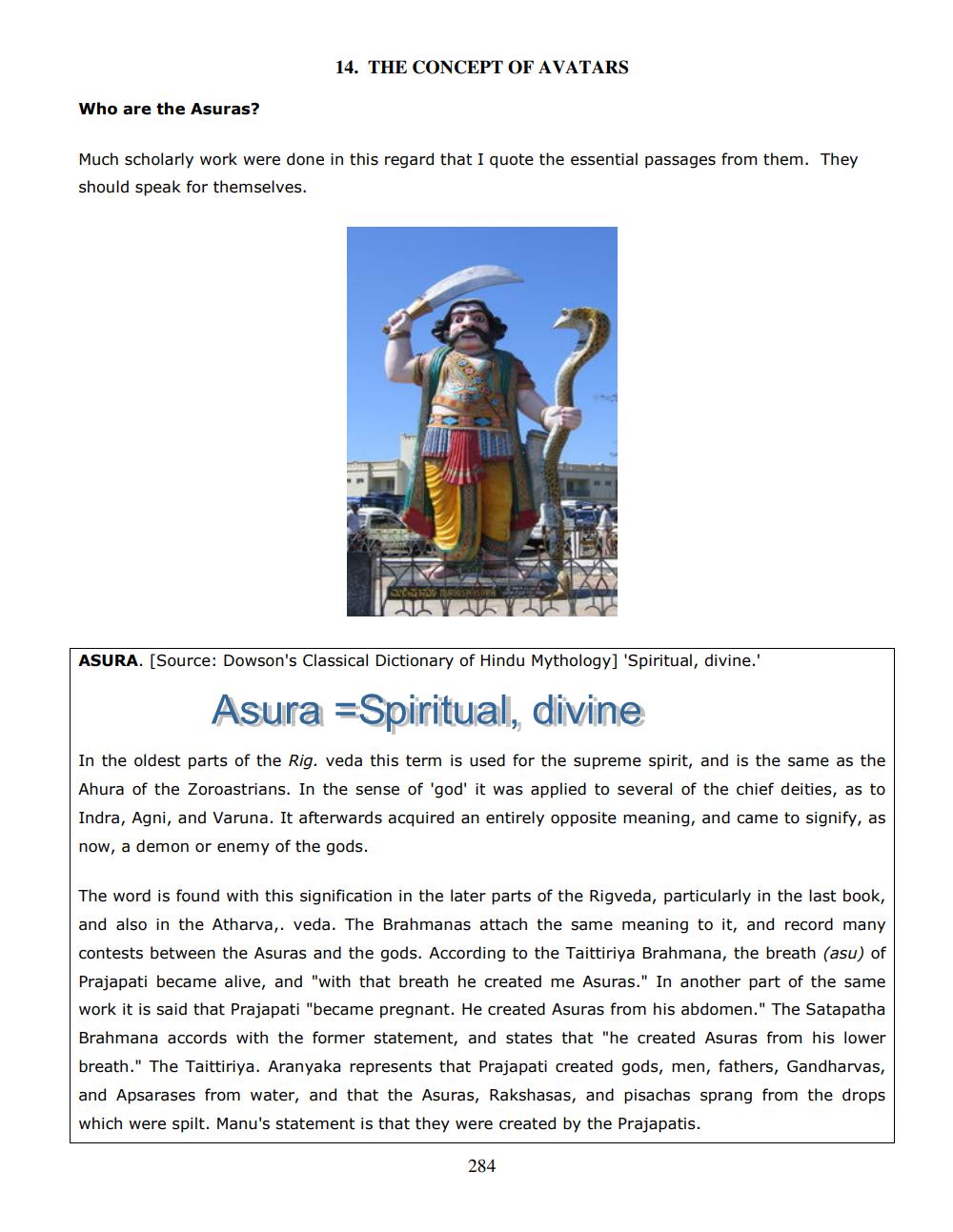________________
14. THE CONCEPT OF AVATARS
Who are the Asuras?
Much scholarly work were done in this regard that I quote the essential passages from them. They should speak for themselves.
VC
W
ASURE
ASURA. [Source: Dowson's Classical Dictionary of Hindu Mythology] 'Spiritual, divine.'
Asura =Spiritual, divine
In the oldest parts of the Rig. veda this term is used for the supreme spirit, and is the same as the Ahura of the Zoroastrians. In the sense of 'god' it was applied to several of the chief deities, as to Indra, Agni, and Varuna. It afterwards acquired an entirely opposite meaning, and came to signify, as now, a demon or enemy of the gods.
The word is found with this signification in the later parts of the Rigveda, particularly in the last book, and also in the Atharva, veda. The Brahmanas attach the same meaning to it, and record many contests between the Asuras and the gods. According to the Taittiriya Brahmana, the breath (asu) of Prajapati became alive, and "with that breath he created me Asuras." In another part of the same work it is said that Prajapati "became pregnant. He created Asuras from his abdomen." The Satapatha Brahmana accords with the former statement, and states that "he created Asuras from his lower breath." The Taittiriya. Aranyaka represents that Prajapati created gods, men, fathers, Gandharvas, and Apsarases from water, and that the Asuras, Rakshasas, and pisachas sprang from the drops which were spilt. Manu's statement is that they were created by the Prajapatis.
284




